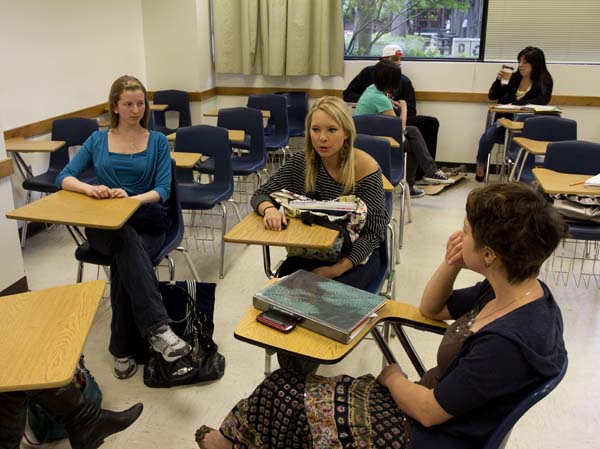Students learn skills to help local groups

Classes:Class members discuss ways in which to help out the Sacramento Children?s Home on April 14.:Rachel Day – State Hornet
April 20, 2011

Classes:Class members discuss ways in which to help out the Sacramento Children?s Home on April 14.:Rachel Day – State Hornet
April 20, 2011
Your donation will support the student journalists of Sacramento State University. Your contribution will allow us to purchase equipment and cover our annual website hosting costs.